Conscience vote in Qld: What are they and what is the history?
What exactly is a conscience vote and how has Queensland navigated them through the years?
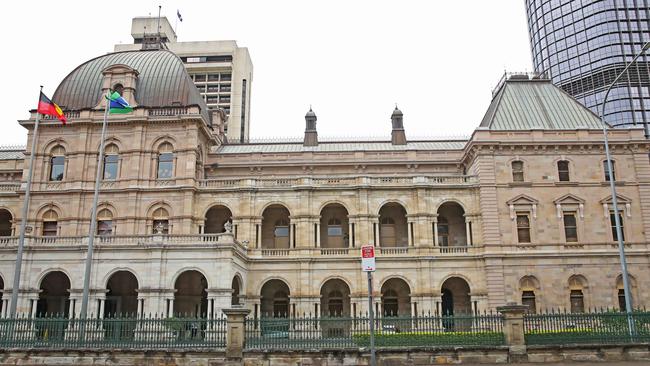
QLD Votes
Don't miss out on the headlines from QLD Votes. Followed categories will be added to My News.
The future of abortion laws in Queensland could come down to conscience voting, adding to the state’s history of the controversial process.
So what exactly is a conscience vote and how has Queensland navigated them through the years?
All your questions answered below, plus history in Queensland >>>
FOLLOW OUR COMPLETE ELECTION COVERAGE HERE
What is a conscience vote?
When a party decides that a particular issue will be a conscience debate, Members belonging to that party are able to vote according to their own beliefs rather than being bound by their party conventions to vote in support of that party’s position on an issue.
While conscience debates are rare in the Queensland parliament, they generally attract much interest and attention.
A party whip will advise the Speaker in advance if their party is to have a conscience debate on an upcoming division.
Source: Qld parliament
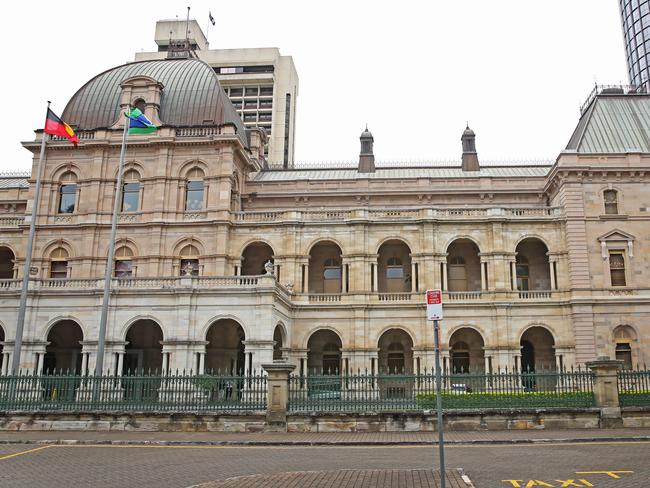
What is the process for a conscience vote?
The procedure for voting in a conscience debate will be by ‘personal voting’ rather than ‘party voting’.
A personal vote will also be held if a whip challenges the result of a party vote.
The procedure for personal voting will follow the process for how divisions previously occurred in the Queensland parliament prior to the introduction of party voting.
This procedure is outlined below (as contained in section 107 of the Standing Rules and Orders):
1. When the bars have been closed, the Speaker shall state the question to the House, and then direct the “Ayes” to proceed to the right of the Chair and the “Noes” to the left.
2. After members have divided, the Speaker shall appoint two tellers from each side. If two tellers cannot be found for one side of the question, the Speaker must immediately declare the resolution of the House. The member who called for the division may ask for their dissent to be recorded in the Record of Proceedings. The Speaker then directs the Clerk to record that dissent.
3. The tellers shall count the members voting and record the vote of each member present on the division sheets.
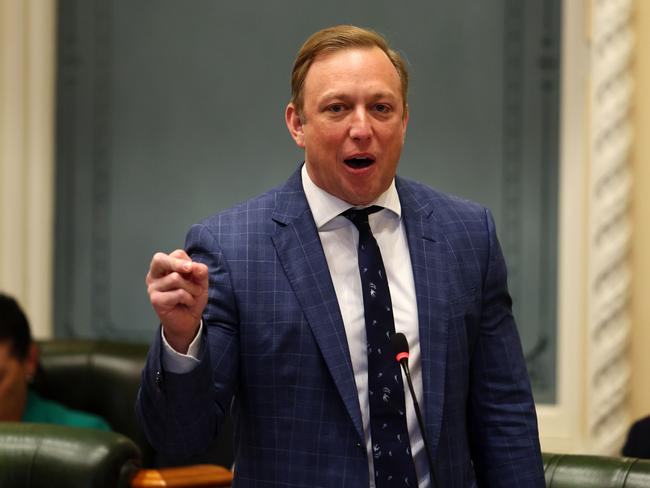
4. A member may not change their vote once the tellers have been appointed.
5. The tellers shall report the numbers to the Speaker.
6. The Speaker shall announce the result of the division to the House.
7. In case of confusion or error concerning the numbers reported, unless it can be otherwise corrected, the House shall proceed to another division on the question.
8. The names of the members who have voted are recorded in the Record of Proceedings.
If there are an equal number of votes for the ‘ayes’ and ‘noes’, the Speaker has a casting vote.
The Speaker may give reasons for the casting vote and those reasons are entered in the Record of Proceedings.
Source: Qld parliament
When has Qld had a conscience vote?
Some recent examples of conscience debates in the Queensland parliament were for the following bills:
Civil Partnerships Bill 2011
Queensland MPs in December 2011 voted in favour of legalising same-sex civil unions during a historic night in parliament.
After almost four hours of debate Andrew Fraser’s private member’s bill was passed by a vote of 47 to 40.
The bill, introduced by Deputy Premier Andrew Fraser, enables same-sex couples to register their union with the Queensland Registry of Births, Deaths and Marriages.
The bill granted same-sex couples the right to enter in to legally recognised civil unions. At least one of the parties to the civil partnership must live in Queensland.
The debate prompted a strong reaction from gay rights, religious and family groups.
Labor MPs were allowed a conscience vote, but all Liberal National Party voted against the bill.
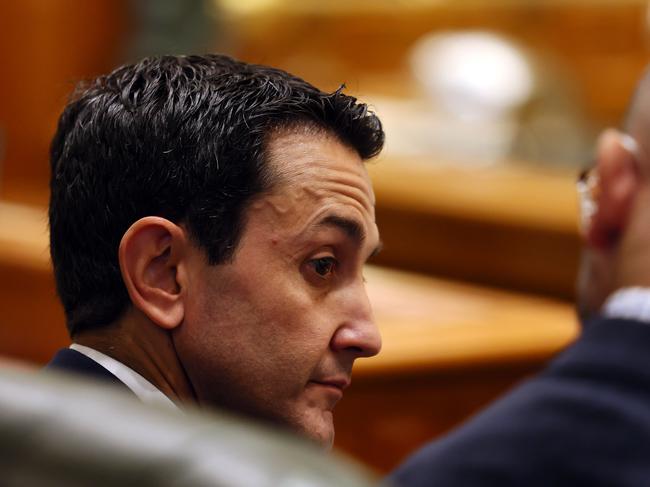
Surrogacy Bill 2009
Two Labor MPs in February 2010 crossed the floor to vote against the Bligh Government’s plan to allow gay couples and single parents to have children through surrogacy.
But it was not enough to scuttle the Bill which was passed at 8pm, 45 votes to 36 following a marathon debate.
Seven MPs did not cast a final vote on the Bill.
Former Minister Margaret Keech and Capalaba MP Michael Choi told parliament they could not support the entire Bill that decriminalises altruistic surrogacy without severely compromising their consciences.
“It is never easy to disagree with colleagues …(but) at times even the best of friends disagree,” Mr Choi said.
Human Cloning Bill 2003
Queensland researchers were in March 2003 given the green light to experiment with embryonic stem cells after MPs overwhelmingly backed controversial new laws in a historic vote in state parliament.
Intense lobbying by a group of Labor back benchers opposed to the Bill failed to sway the majority of MPs, with 65 voting in favour of allowing surplus IVF embryos to be used for research.
Twenty MPs, including eight Labor politicians, took advantage of a conscience vote to oppose the Bill on ethical, moral or scientific grounds.
The vote followed an often emotional and sometimes divisive 12-hour debate which spanned two days.
Labor MP Linda Lavarch (Kurwongbah) urged her colleagues to support the Bill on the grounds it might one day help cure people such as her daughter, who has juvenile diabetes.
But on the other side of the chamber, independent MP Dorothy Pratt (Nanango) said there was no evidence embryonic research would help her or fellow multiple sclerosis sufferers.
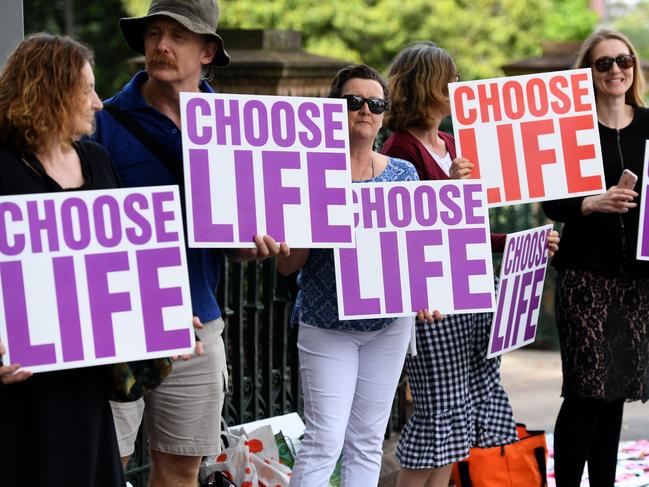
Decriminalising abortion
Abortion was in October 2018 decriminalised in Queensland, with MPs voting 50-41 in favour of the Termination of Pregnancy Bill 2018 in a conscience vote.
Member for Bundamba Jo-Ann Miller was the only Labor MP who voted against the Bill, while Labor Member for Logan Linus Power abstained.
Former opposition leader Tim Nicholls backed the changes, as did fellow LNP members Steve Minnikin and Jann Stuckey.
The final vote confirmed the earlier result of 51-41 in favour after the second reading of the legislation.
And it followed two days of often-emotional debate in the House, as Government, Opposition and crossbench MPs outlined the reasons for their position on the contentious Bill.
Voluntary assisted dying
Voluntary assisted dying became legal in Queensland in September 2021 following a historic and emotional victory in the state’s parliament.
From 2023 Queenslanders suffering a terminal illness that is expected to cause death within 12 months would be able to choose when to end their life.
Queensland’s 91 politicians – many who described the assisted dying vote as the most important they would ever cast – passed the landmark legislation with a convincing 61-30 margin.
It made Queensland the fifth Australian state to legalise voluntary assisted dying.
Three years of reports, public inquiries and community consultation culminated in cheers from the packed public gallery as the Speaker proclaimed the Bill passed.
Originally published as Conscience vote in Qld: What are they and what is the history?


